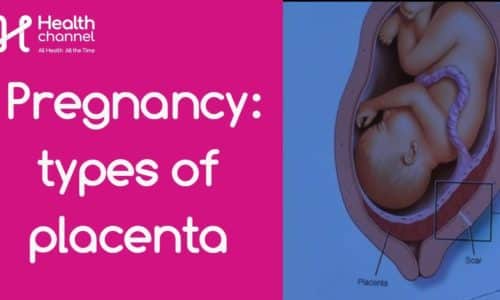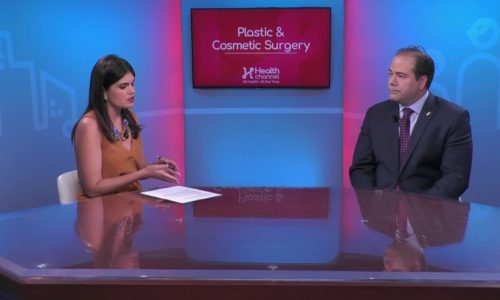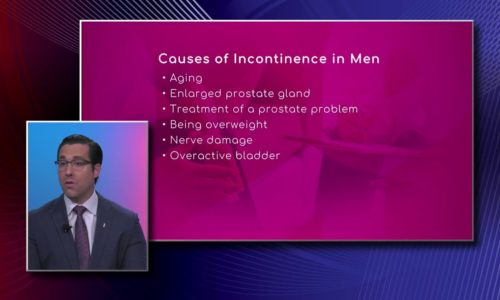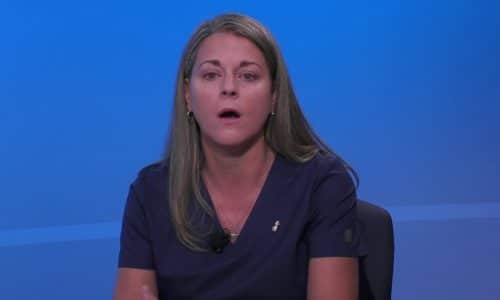Causes of Menopause and Andropause |
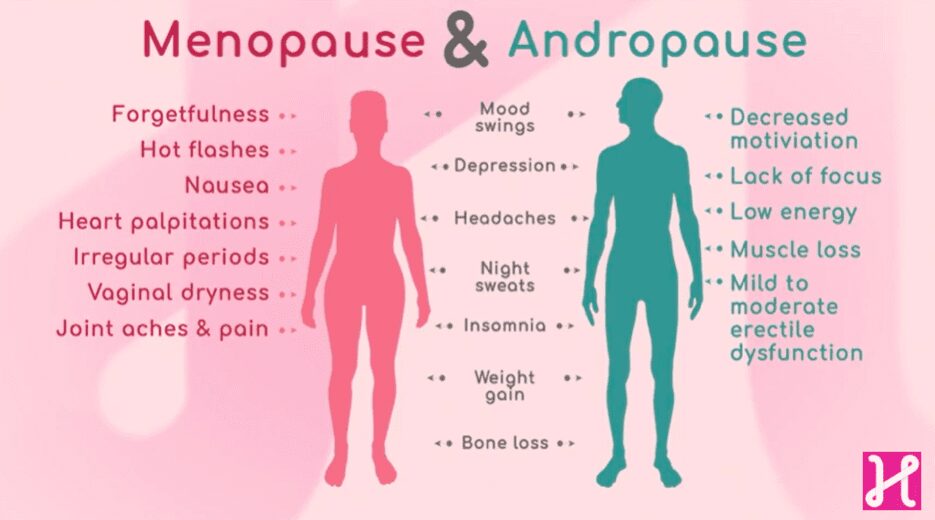
In an episode of Health Insiders on the Health Channel, Dr. Daniel Martinez talks about andropause, a phenomenon similar to menopause that occurs in older men. Dr. Martinez explains that andropause is caused by decreasing levels of testosterone in men as they age.
Testosterone is commonly known as a male hormone, but women also produce testosterone in their ovaries and their adrenal glands. Women need to have a certain level of testosterone, but it is the hormone that provides men with their secondary sex characteristics. It gives them the energy and helps with their sexual function. Men with low testosterone tend to feel lethargic and feel like something about themselves is off. As men age their testosterone level naturally falls. “We don’t have a very good grip as to what, specifically, your testosterone levels should be depending on age,” Dr. Martinez explains, “We just have a normal range which is 250 to 850. But we do know that as men get older, they can develop what we call andropause or man-opause.”
The major difference between menopause and andropause is that women hit a wall, while for men it is a slow decline over time. A lot of the symptoms between the two are very similar: lack of focus, low energy, muscle loss, night sweats, insomnia, weight gain, bone loss, mood swings, and depression. Just as men develop andropause from testosterone loss, women also develop menopause from the decline of their major sex hormone, estrogen.
Sometimes, women can get early menopause. Unfortunately, young men can also develop andropause in a similar way. “I don’t know why; I think it may have to do with a lot of the lifestyle choices that we’re making nowadays. The American diet, not exercising enough, the high stress, the drug use, the other medical problems that we’re developing from not exercising, doing all these other things as well may develop premature andropause,” Dr. Martinez theorizes. We tend to see hypogonadism, or low testosterone, issues start for men in their 50s or 60s, but Dr. Martinez says that he’s also encountered testosterone issues in teenagers and men in their 20s.
Hormone replacement therapy is available for men in the same way it is for women, but Dr. Martinez explains it is also very controversial. “We live in a society, right now, that’s obsessed with testosterone. You open the local newspaper, and you go to the sports section, you’re going to find a ton of different places where you can go and replace your testosterone.” Dr. Martinez elaborates, “It is available, and it is very useful and great in certain patient populations that truly need it. That’s the key word here, is if somebody really needs it.” If your thyroid stops producing hormones, you need to replace them. Dr. Martinez worries that a lot of people are being prescribed testosterone when they probably do not need to be put on testosterone. “They’re not really counseled appropriately, and they don’t quite understand something as simple as, ‘hey by the way this is for life’. When a patient comes to me and says, ‘Oh I took it for three months and I felt better but now I feel terrible’ I say, well yeah because it’s meant to be taken for life,” Dr. Martinez says. Better education and better awareness as to what’s the right way of taking these medications, who should really be on them, and the risk factors of taking these testosterones must be implemented. Dr. Martinez feels as though people misconceive testosterone therapy as a quick fix, or a ‘fountain of youth’. “I got a 60-year-old man come to me and say, ‘well I don’t feel the same way I felt when I was 18 years old’. Well, you’re not,” Dr. Martinez says. You do want to have normal testosterone levels because it is unhealthy to be hypogonadal. It increases your risk for heart attack and stroke and can cause other medical problems but taking bodybuilding such as steroids can also be potentially dangerous.
The FDA has issued a public health advisory warning consumers to stop using products marketed for bodybuilding that claim to contain steroids or steroid-like substances. Although some of these products are marketed as dietary supplements, they are not dietary supplements. They are unapproved drugs that contain synthetic steroid, or steroid-like active ingredients. Be aware that these products have not been reviewed or approved by the FDA and are potentially harmful to your health. These products can be found online and in retail stores and are promoted as hormone products or alternatives to anabolic steroids for increasing muscle mass and strength. Many of these products make claims about the ability of the active ingredients to enhance or diminish androgen, estrogen, or progestin-like effects in the body. These products may be associated with liver injury, kidney failure, blockage of an artery in the lung, and stroke. They may be associated with other serious health problems in adults and children too. If you have been taking one of these products, the FDA recommends that you stop immediately. You should also consult your health care professional if you’re experiencing nausea, weakness, fatigue, fever, abdominal pain, chest pain, shortness of breath, yellowing of the skin or whites of the eyes, or brown, discolored urine. The FDA cautions that athletes taking these products may test positive for performance-enhancing drugs. Consumers should report serious adverse events or problems associated with these products to the FDA. They should go to the FDA webpage at FDA.gov and look for the link to MedWatch.
“Too much testosterone is not necessarily a problem,” Dr. Martinez adds. “If your body makes a certain amount of testosterone and you don’t have some sort of testosterone producing tumor, that is fine. But when somebody is being prescribed testosterone, or taking it illegally, or buying it from the streets, and they’re not monitoring themselves, they can put themselves at risk for increasing atherosclerosis, liver damage, and other potential bodily harm. It can cause infertility as well. I see that quite often. A younger gentleman who wants to have children, but they’re on testosterone replacement therapy, nobody told them, ‘By the way this may affect spermatogenesis. You may not be producing sperm right.’ And then they’re wondering why they’re unable to have children,” Dr. Martinez explains. Hormone replacement therapy is great for those who truly need it, but proper counseling is key.
Watch the full segment about andropause with Dr. Daniel Martinez, here: https://youtu.be/tmFzNSc-3vk



